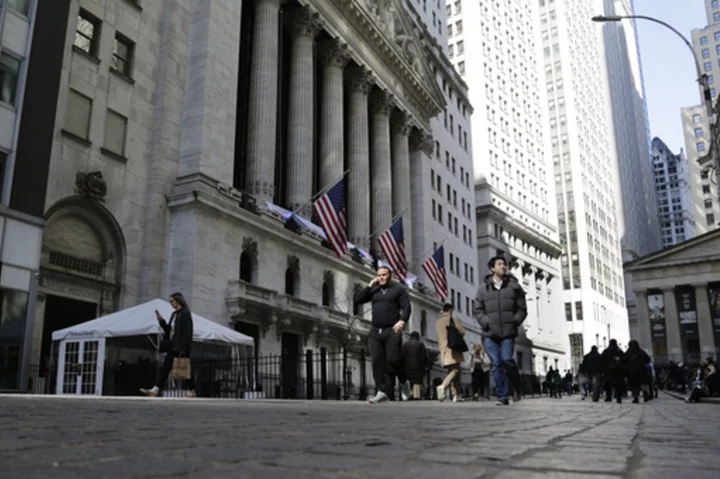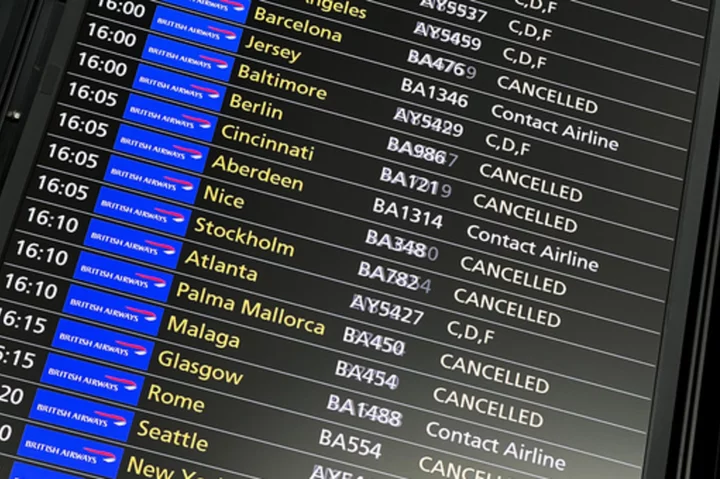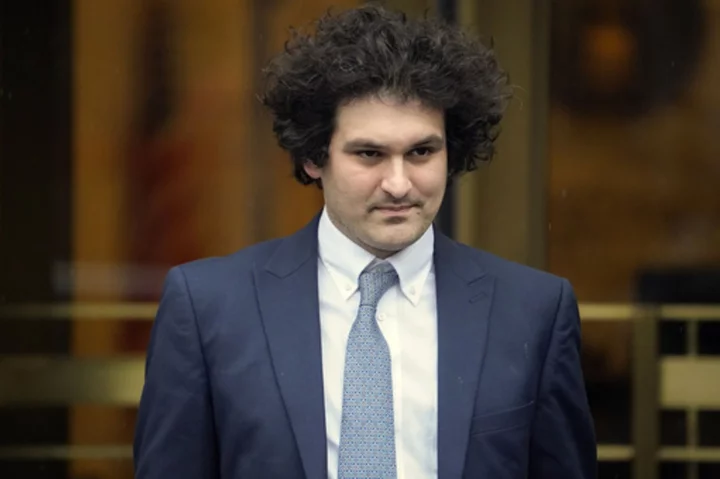Wall Street futures retreated early as markets remained cautious ahead of another full slate of corporate earnings and a decision on interest rates Wednesday by the U.S. Federal Reserve.
Futures for the Dow slipped 0.4% before the bell and futures for the S&P fell 0.5%.
For the first time in nearly two years, the Federal Reserve is expected to keep its key short-term interest rate unchanged for a second straight policy meeting, in part because the economy has been moving mostly in the direction that Chair Jerome Powell has hoped for. Inflation has tumbled, even though hiring, consumer spending and economic growth have remained robust.
However, Powell and his colleagues at the Fed have not taken the possibility of another rate hike off the table.
The Fed has already pulled its main overnight interest rate above 5.25% to its highest level since 2001. Officials at the U.S. central bank have been saying it will make upcoming moves based on what data say about inflation and the job market, where the worry is that too-strong growth could give inflation more fuel.
In premarket equities trading, CVS Health dipped about 1% after it posted better-than-expected third-quarter sales and profit but trimmed its adjusted per-share earnings expectations for the year.
Airbnb and DoorDash release their latest financial results after the bell, with Apple, Starbucks and a slew of others reporting Thursday.
Oil prices were higher as Israeli airstrikes leveled apartment buildings in Gaza and ground troops battled Hamas militants inside the besieged territory. In recent days, Israeli troops have advanced toward the outskirts of Gaza City from the north and east. Worries that fighting could escalate beyond the latest Israel-Hamas war, potentially disrupting supplies, have roiled oil markets in recent weeks.
U.S. benchmark crude oil advanced $1.55 early Wednesday to $82.57 a barrel. It lost 29 cents on Tuesday to $81.02. Brent crude, the international standard, picked up $1.55 to $86.57 a barrel.
Germany's DAX and the CAC 40 in Paris gained less than 0.1% while Britain's FTSE 100 ticked down less than 0.2%.
Tokyo's Nikkei 225 index added 2.4% to 31,601.65 a day after the Bank of Japan held back from any major changes to its near-zero interest rate policy, though it adjusted its controls on government bond yields.
The dollar weakened against the Japanese yen, trading at 151.22 yen. The euro fell to $1.0543 from $1.0575.
The 10-year Treasury yield ticked lower to 4.88% early Wednesday from 4.92% late Tuesday.
Elsewhere in Asia, Hong Kong, the Hang Seng edged less than 0.1% higher, to 17,101.78. The Shanghai Composite index gained 0.1% to 3,023.08.
South Korea's Kospi advanced 1% to 2,301.56 and the S&P/ASX 200 rose 0.9% to 6,838.30.
Tuesday on Wall Street, the S&P 500 gained 0.6% and the Dow Jones Industrial Average added 0.4%. The Nasdaq composite climbed 0.5%.
More than 80% of the stocks in the S&P 500 strengthened. It closed October with a loss of 2.2% for the month. That’s its third straight monthly drop, the longest losing streak since the COVID-19 pandemic froze the global economy at the start of 2020.
Higher bond yields have taken a toll, since they knock down prices for stocks and other investments, while slowing the overall economy and adding pressure on the entire financial system. The 10-year Treasury yield, which is the centerpiece of the bond market, has jumped from less than 3.50% during the spring to more than 5% recently, touching its highest level since 2007.









